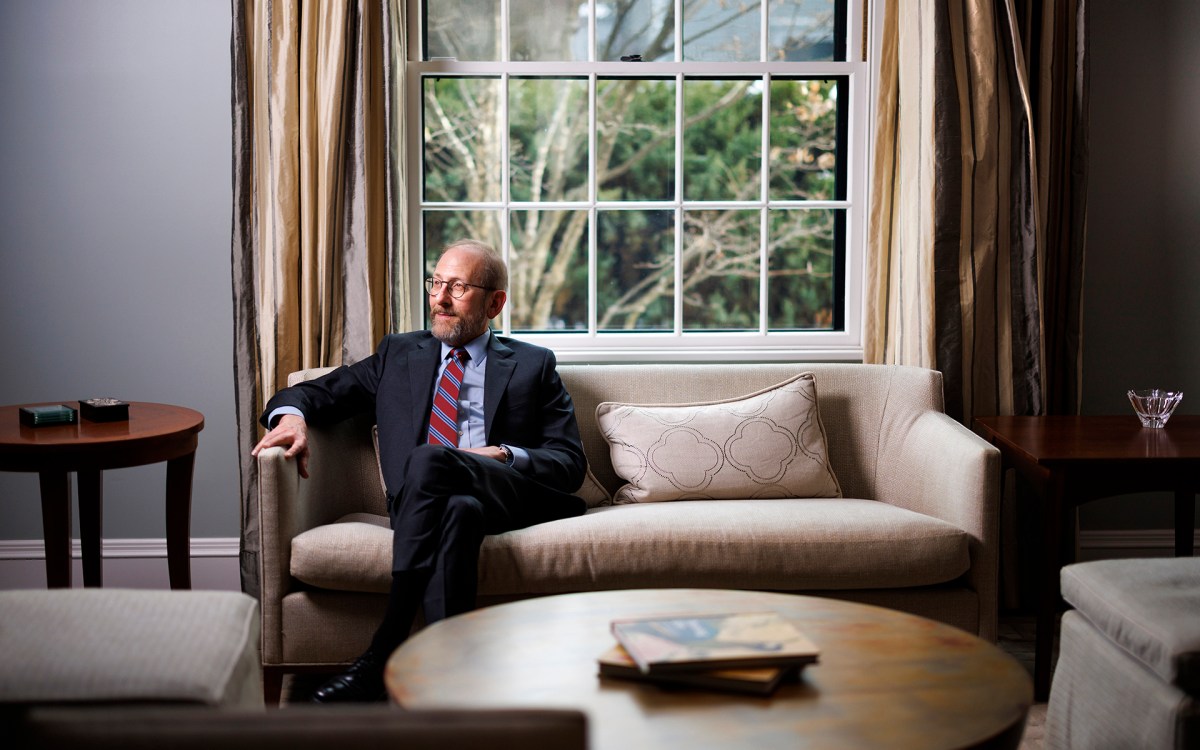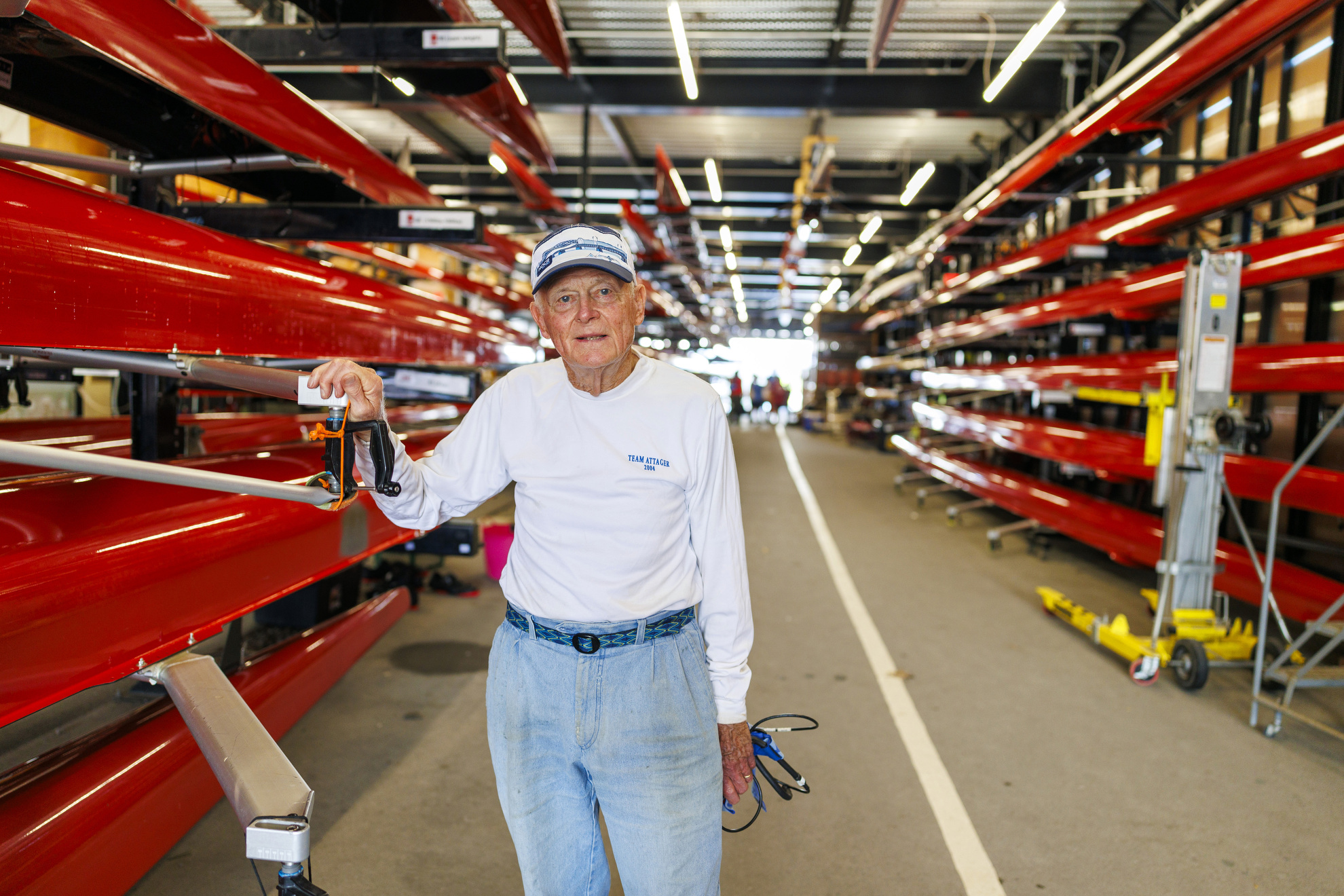
Photos by Stephanie Mitchell/Harvard Staff Photographer
‘How old are you? 70s? You’re JV, maybe next year.’
Olympic gold winner Bill Becklean has been at crew for 75 years, will be coxing boat of octogenarians at Head of Charles
Bill Becklean feels blessed to have taken up crew 75 years ago, when, as a 14-year-old from Missouri, someone told him he’d make a decent coxswain for his high school team.
“I came from Kansas City, Missouri, and never heard of anything called ‘crew,’” said Becklean, 89, who had traveled east to attend Phillips Exeter Academy in New Hampshire. “I weighed 80 pounds, and somebody said, ‘Well, you ought to be a coxswain,’ and I was. Look where that has taken me.”
His most notable stop may be the 1956 summer Olympics in Melbourne, Australia, when his Yale University eight, with Becklean as coxswain, won gold. The latest will come Sunday on the Charles, when he will steer an extraordinary eight — one full of octogenarians — competing in the 2025 Head of the Charles: the Director’s Challenge mixed eights.
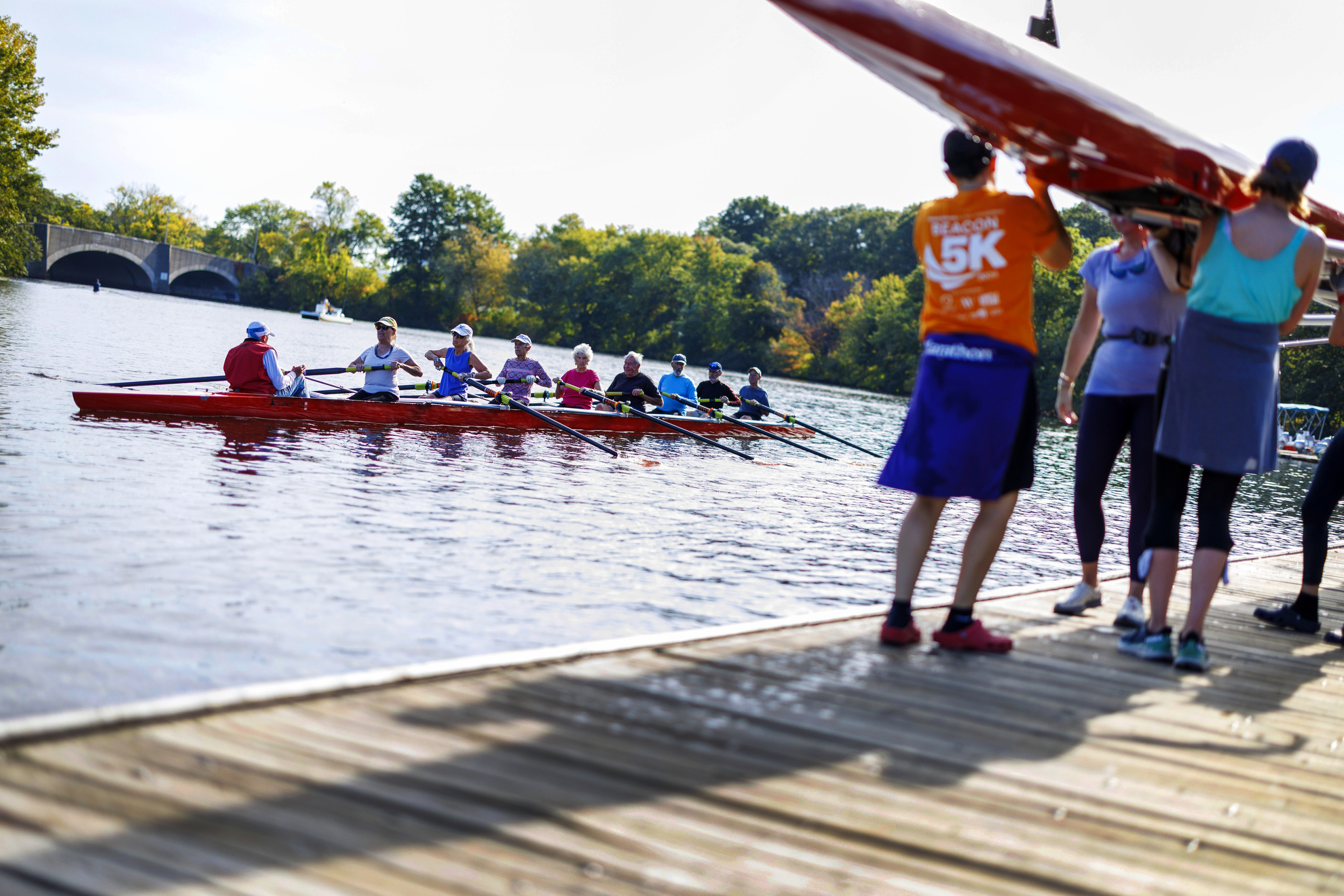
“I think we’re probably going to finish last,” Becklean, M.B.A. ’68, confessed.
Becklean’s boat is number 27 in the 30-boat field, which features eights with mixed men and women crews.
Becklean, who first volunteered for the Head of the Charles in 1966, is familiar with the three-mile course, which winds up the river separating Cambridge and Boston, passing under six bridges. He’s watched as the regatta has become one of the world’s largest and most prestigious.
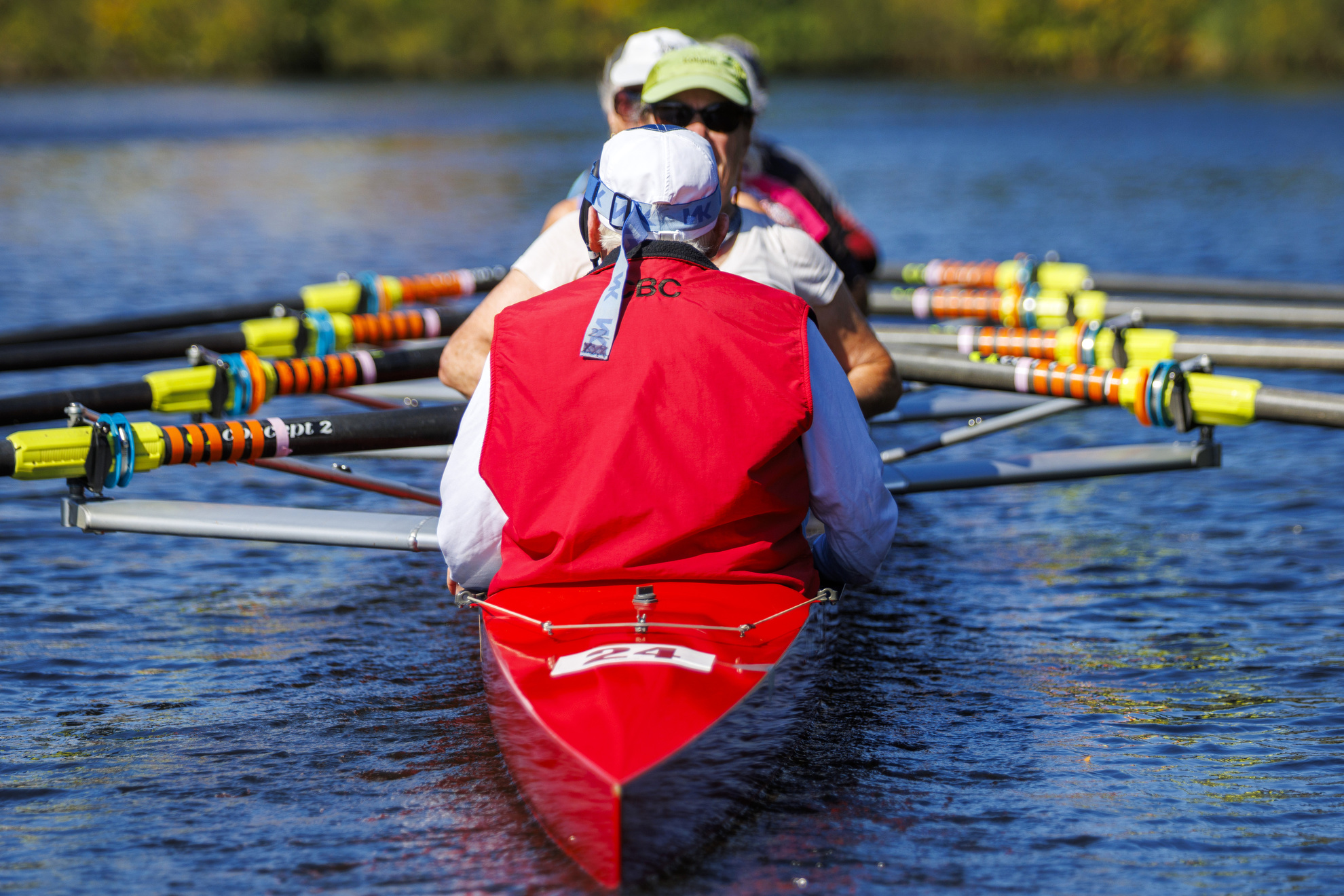
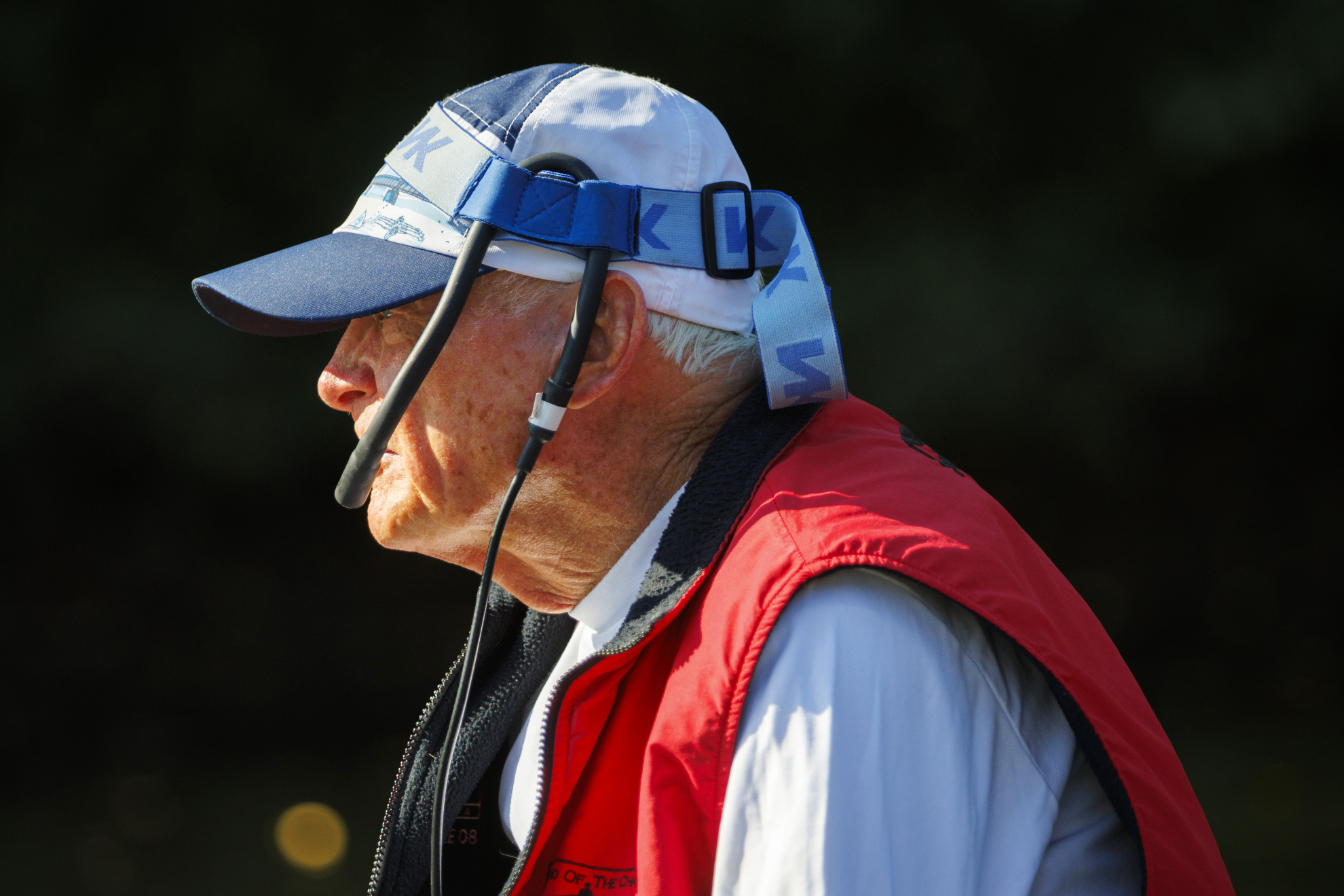
Catherine Saarela, adult recreational sweeps coordinator at Brighton, Massachusetts-based Community Rowing Inc., is more sanguine about the Becklean’s group’s prospects.
It is a “set boat,” she said, meaning it’s well-balanced as it moves through the water, with consistent timing from the rowers, which increases efficiency and speed. Saarela said that’s probably because some of the rowers typically row singles, where they only have themselves to rely on to keep the boat centered and stable.
“It’s not the fastest boat,” Saarela said. “But it also hasn’t been the last boat to finish.”
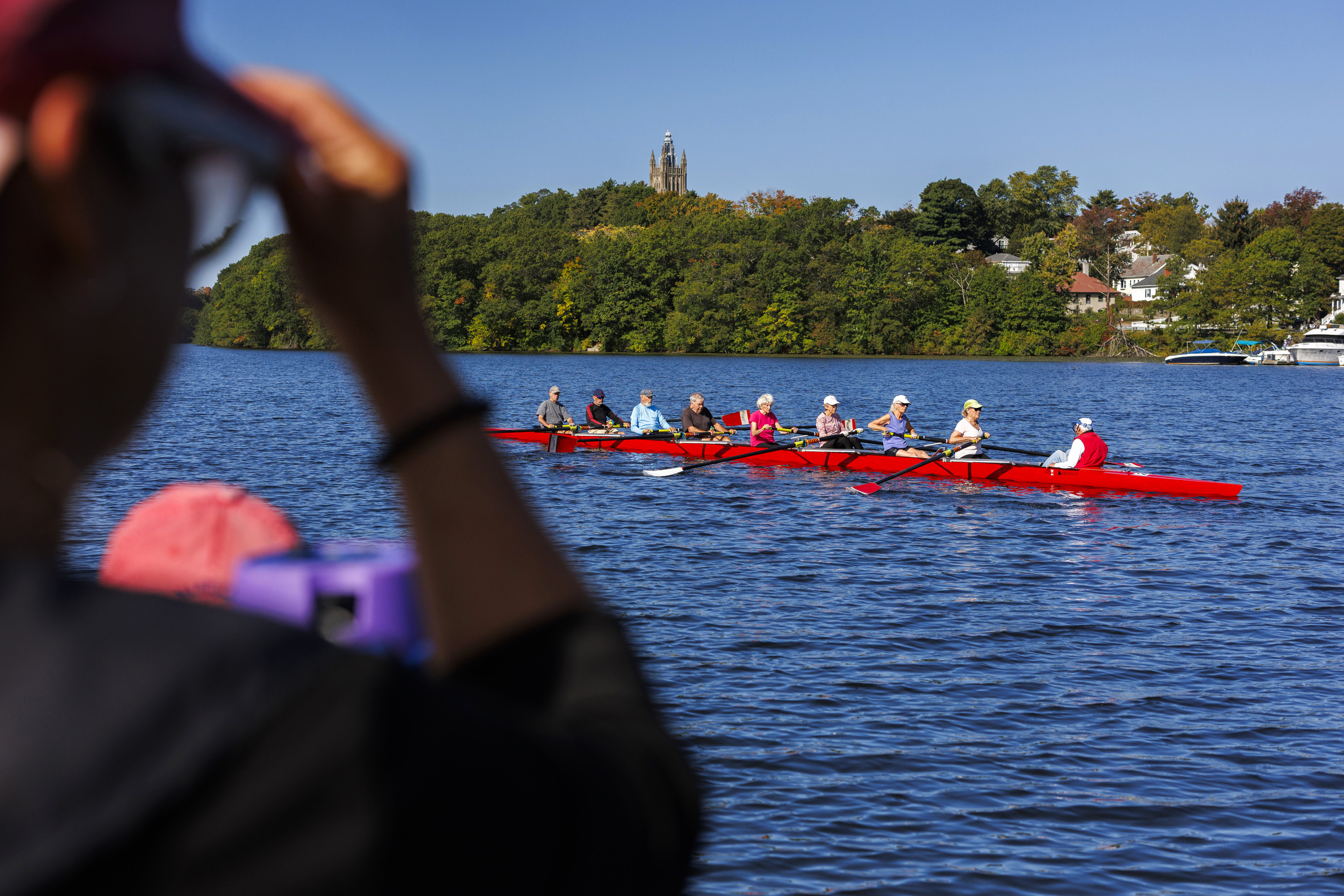
The idea of an all-octogenarian boat was inspired by Saarela’s father, also an octogenarian and a cancer survivor.
About four years ago, he got an award from the YMCA for swimming 1,000 miles over the last 10 years, a feat Saarela pondered during her commute from her New Hampshire home to CRI’s Harry Parker Boathouse in Brighton. Once the idea of a boat crewed by rowers in their 80s popped up, it stuck around.
“I was coaching, and I’d go out and totally profile people: ‘Hey, do you know anyone who’s 80 and still rowing?’” Saarela said. “They’d say, ‘I’m not 80,’ and I’d say, ‘I didn’t ask if you were 80. Who do you know?’”
Seat by seat, she built the boat.
It was fellow referee Bill Barrett who suggested Becklean as coxswain.
“One of the other referees, who’s in his 80s, said, ‘Hey, you need a coxswain. You should reach out to Bill Becklean, he’s a gold medal coxswain,’ and I reached out,” Saarela said. “That’s how Bill became my partner in crime in all this.”
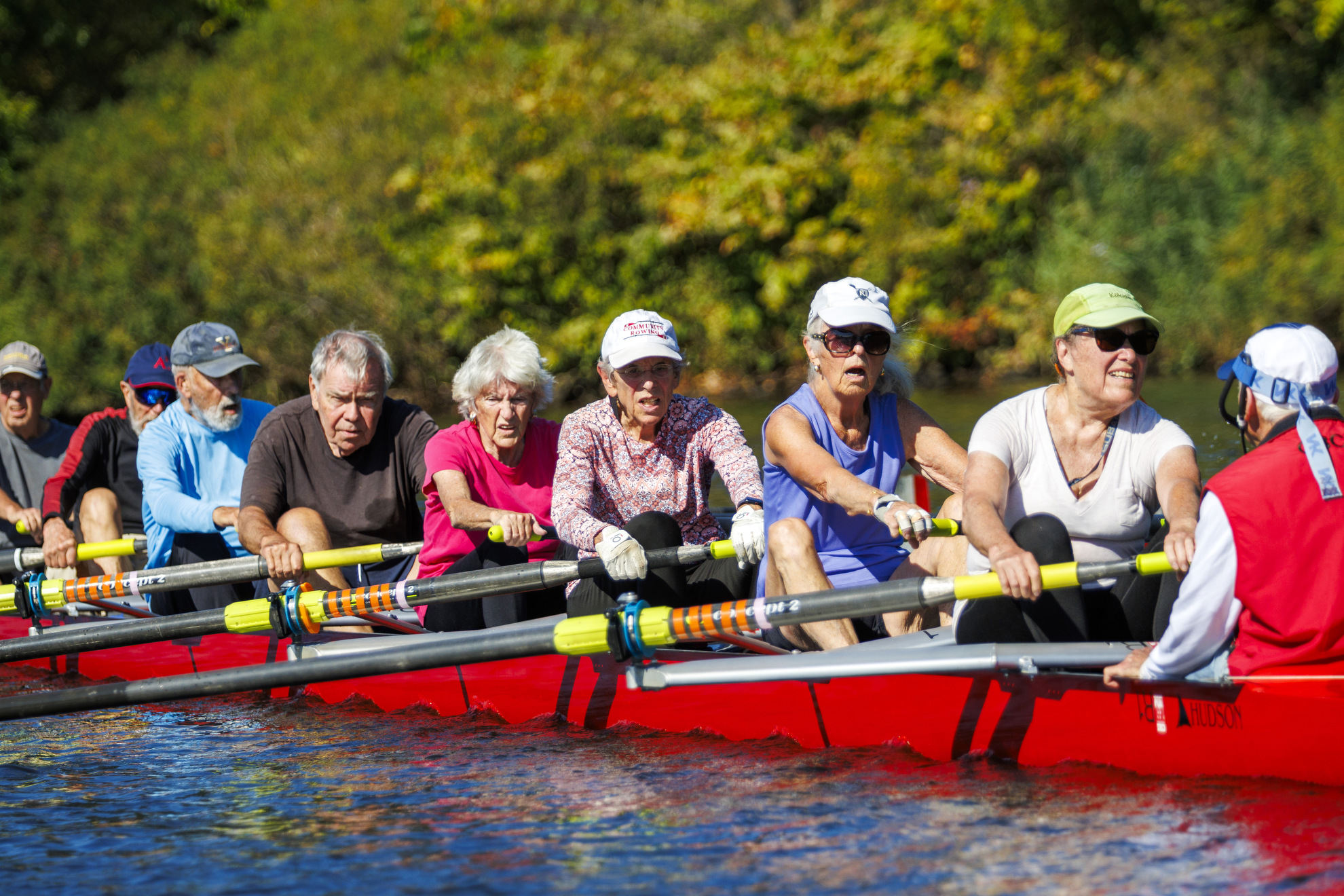
Saarela is just the latest to pull toward a shared goal with Becklean.
Over the decades he’s helped and been helped by many, in the sport and out, from the other skinny kids he shared a boat with at Phillips Exeter, to fellow volunteers in the Head of the Charles’ early years, to Yale’s medal-winning crew in Melbourne.
The road to gold was anything but smooth, Becklean said. Because Australia is in the southern hemisphere, the summer games were held in November, months after the end of the collegiate rowing season.
Instead of staying and training over the summer, the crew scattered to vacations and summer jobs.
They did get together on Connecticut’s Thames River for training sessions in the middle of August, but when the fall term started, the crew parted ways, and six, including Becklean, went back to campus.
“The first heats in Australia were the first race we’d had since the Olympic trials,” Becklean said.
And it showed. They lost their opening heat, which sent them to the repechage race, where losers of the early heats get a chance to fill open semifinal slots. Shaken by the initial loss, they won their repechage, then beat favorite Australia in the semifinals.
Both boats advanced, however, and Yale beat Australia again to win the gold.
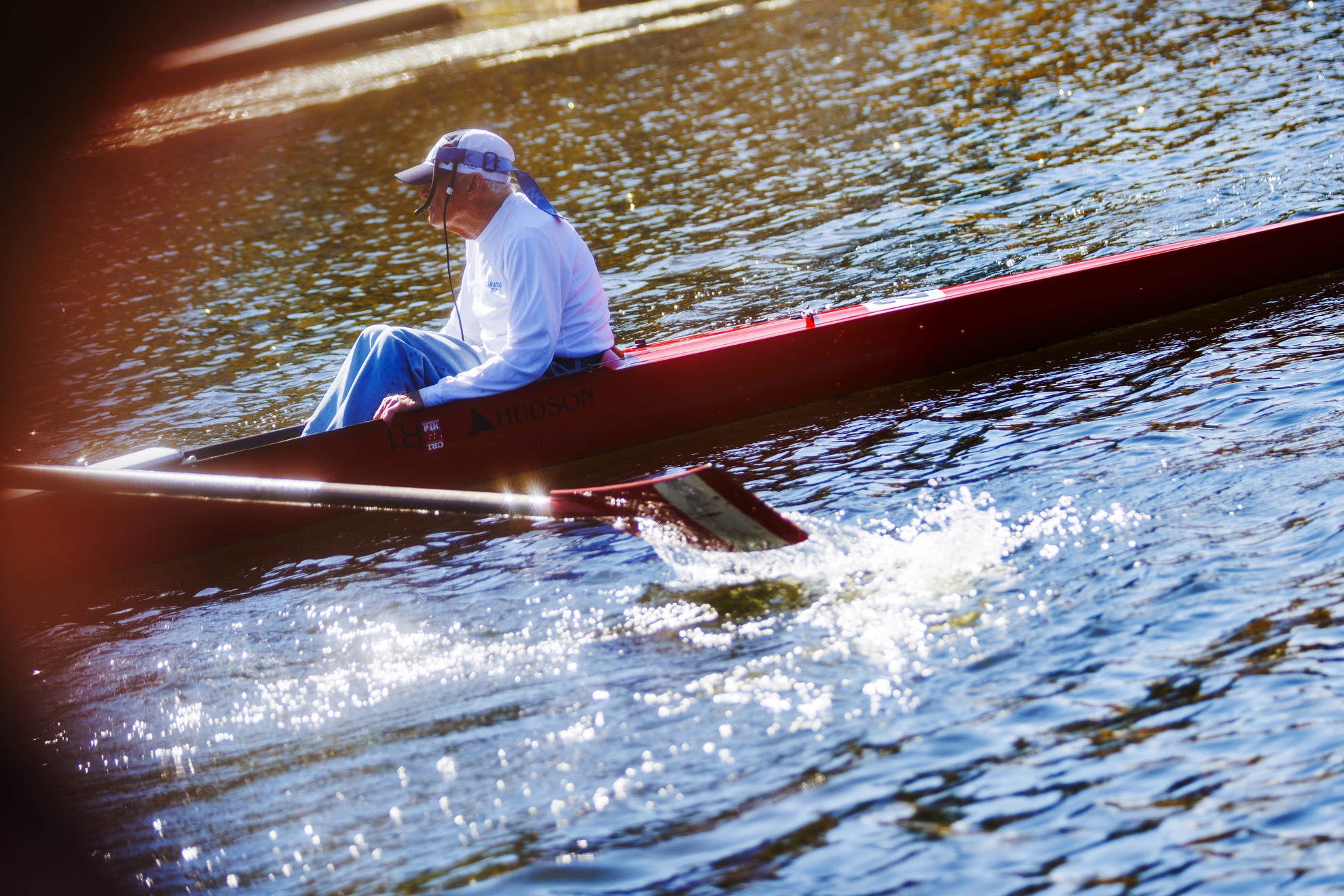
Becklean graduated from Yale with an electrical engineering degree in 1958 and spent the next eight years out of rowing and in the Navy, where he worked on nuclear subs.
Then he left for Harvard Business School and the Charles River, where he couldn’t help noticing the Head of the Charles regatta, then in its second year. He approached legendary Harvard crew coach Harry Parker about volunteering.
A year later he joined the Cambridge Boat Club, where he now has been a member for more than 50 years. He is a past commodore and counts his coaching duties for Cambridge Rindge and Latin’s boys’ crew, based at the club, as “the best thing I’ve ever done.”
“I know this will change those boys’ lives, and it does,” Becklean said. “They learn how to show up on time. They learn how to follow instructions; they learn how to operate as a team; they learn that what you put in is what you get out. There are so many lessons that will be with them for their lives.”
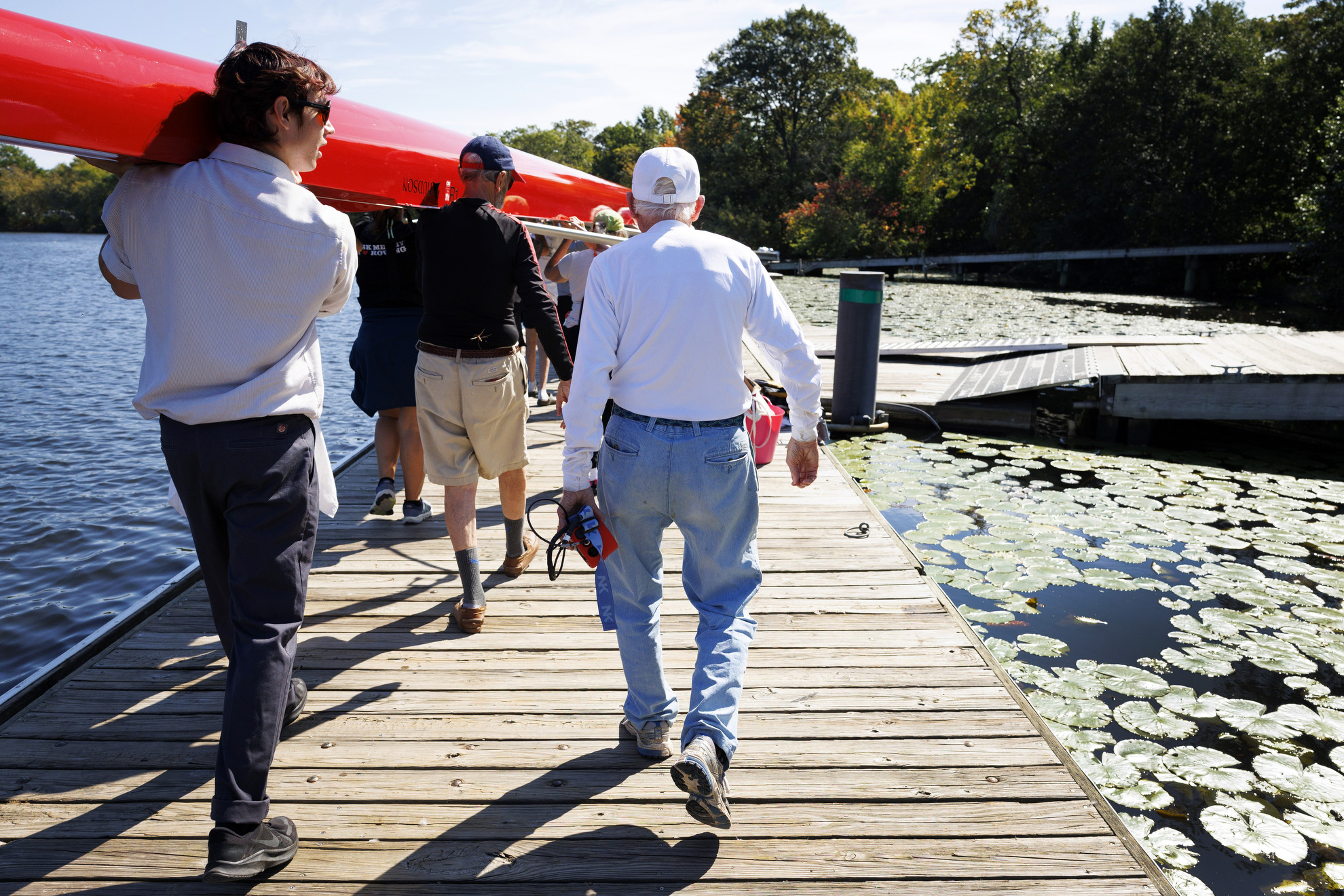
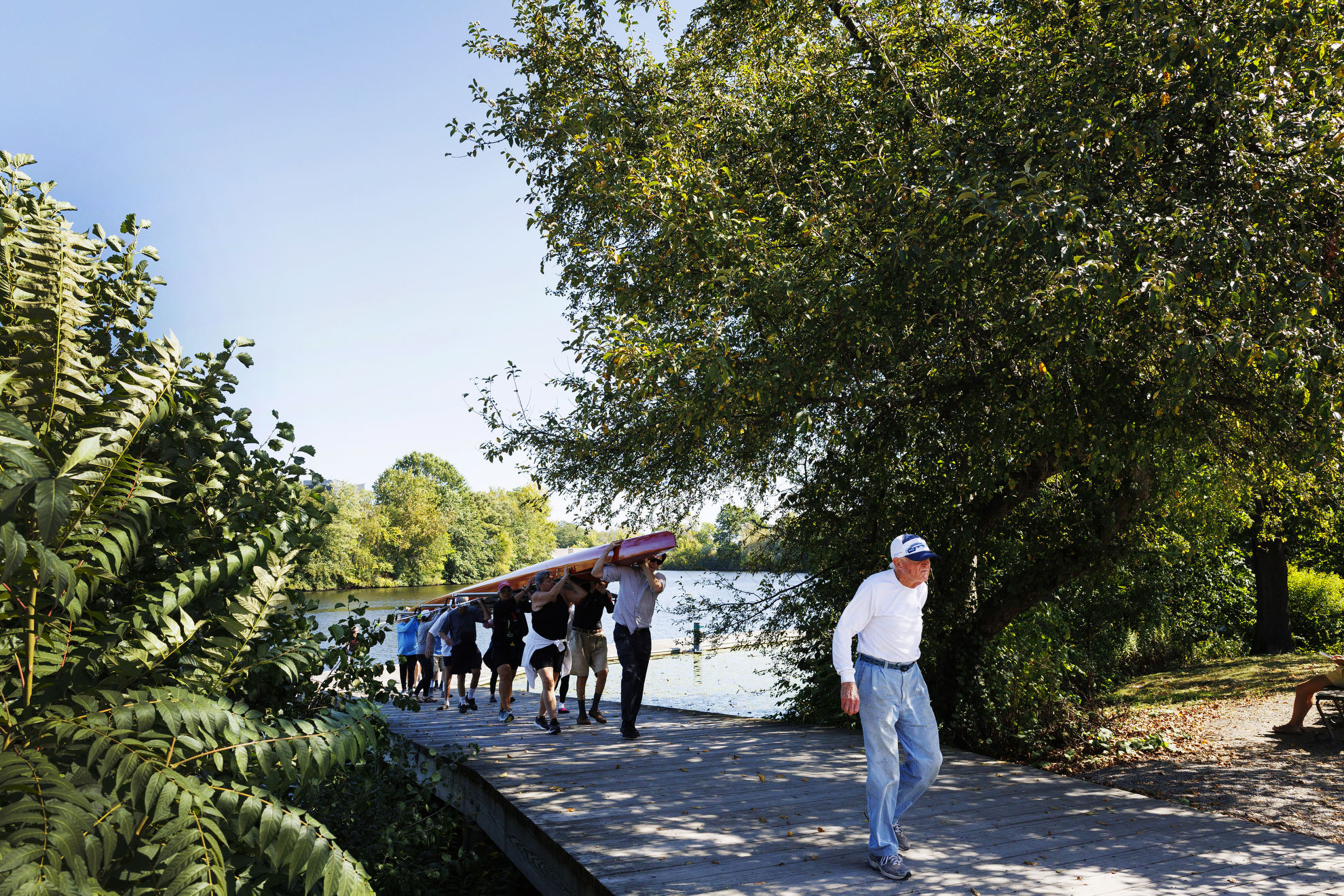
Since then, he’s competed in the Head of the Charles regularly, coxing several boats and rowing, in singles or doubles, in 10 or 12 years.
“I have a doubles partner that I’ve rowed with for 25 years. We rowed it probably 10 times and won it one year, the first that they had an award for 70-year-olds,” Becklean said. “It was the year we turned 70, and we were the only boat in our age group. Then it got very competitive.”
Rooting for Becklean this year will be another rowing partner, Malcolm Salter, a former Harvard lightweight rower who’s been rowing doubles with him for several years.
Salter, HBS’ James J. Hill Professor of Business Administration, emeritus, and faculty fellow for Harvard lightweight crew, said he met Becklean six years ago when he visited the Cambridge Boat Club.
The two started talking and discovered that Becklean had been a student of Salter’s when Becklean was working toward his M.B.A. Now Salter, four years Becklean’s junior, has become something of a student of his.
“My goal is basically to be Bill Becklean,” Salter said. “My goal is to be able to be rowing in the Head of the Charles when I’m 90.”
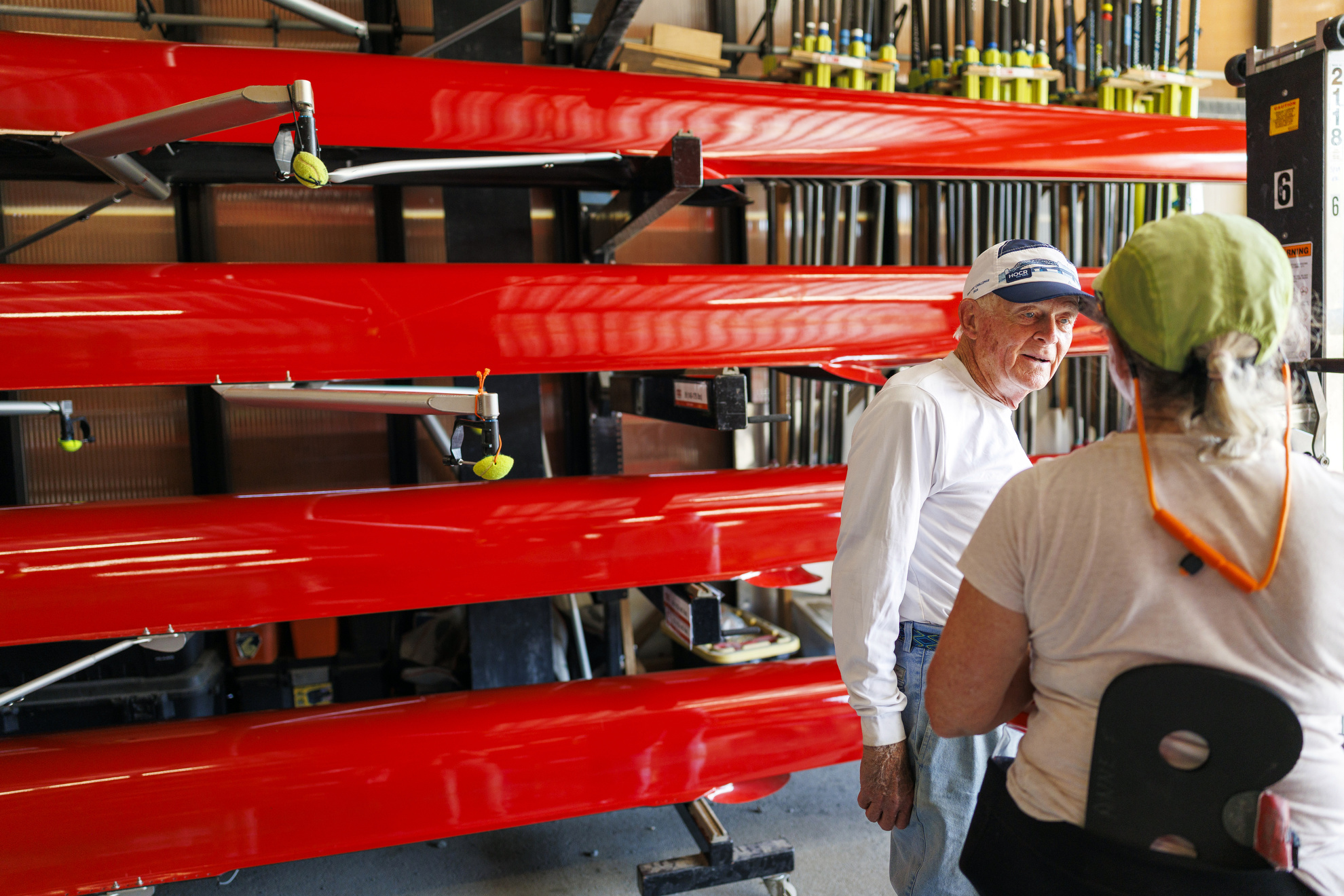
Becklean, Salter said, has an eye for the sport’s more technical elements, things that can slow the boat: the errant splash of a misplaced blade or a seat sliding slightly out of time. Despite that, he doesn’t lose sight of the fact that rowing should be fun.
“He has total command and control of the boat because he has so much knowledge. He’s the ultimate collegial competitor,” Salter said. “He’s a carrier for the sport. He’s very supportive. He lives it. He loves to talk about it.”
Word has gotten out in the racing community, Saarela said, and older rowers are calling her.
This year — the fourth for the all-80s crew — she’ll have 15 rowers, with Becklean in the coxswain’s seat.
Seven will row downstream from Community Rowing on the Charles River to the race’s start near Boston University’s DeWolfe Boathouse, and seven more will race the three miles back.
One intrepid octogenarian will row both ways.
“I have not had a hard time filling seats,” Saarela said. “I’ve got one woman from Saratoga Springs who called me and wanted to do this. Plus, I’m a referee, I travel around, and I talk about it. I’ve got people who come up to me in their 70s: ‘Do you have an extra spot?’ I say, ‘How old are you? 70s? You’re JV, maybe next year.”
“Every time I come back from having rowed, it just feels so good. I’ll keep doing it as long as I can get in a boat. It’s been great fun.”
Becklean rowed his last single a few years ago after what for him was the “perfect” race: He had trained hard; conditions were ideal; he rowed well; and beat his desired time. He still rows doubles, though, and isn’t considering stepping away from the coxswain’s seat.
“I love the sport. My closest friends are all rowers. There are times when I’m driving in here and I say, ‘Do I really want to do this?’ but I’ll tell you, every time I come back from having rowed, it just feels so good,” Becklean said. “I’ll keep doing it as long as I can get in a boat. It’s been great fun.”
